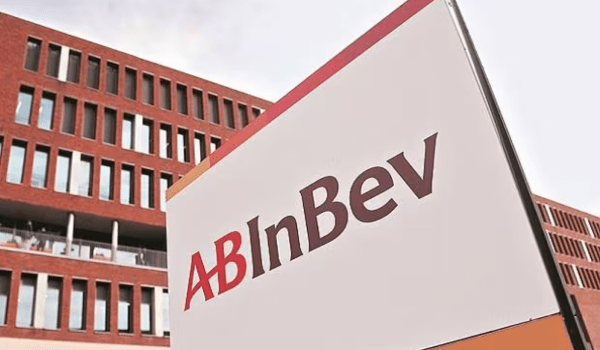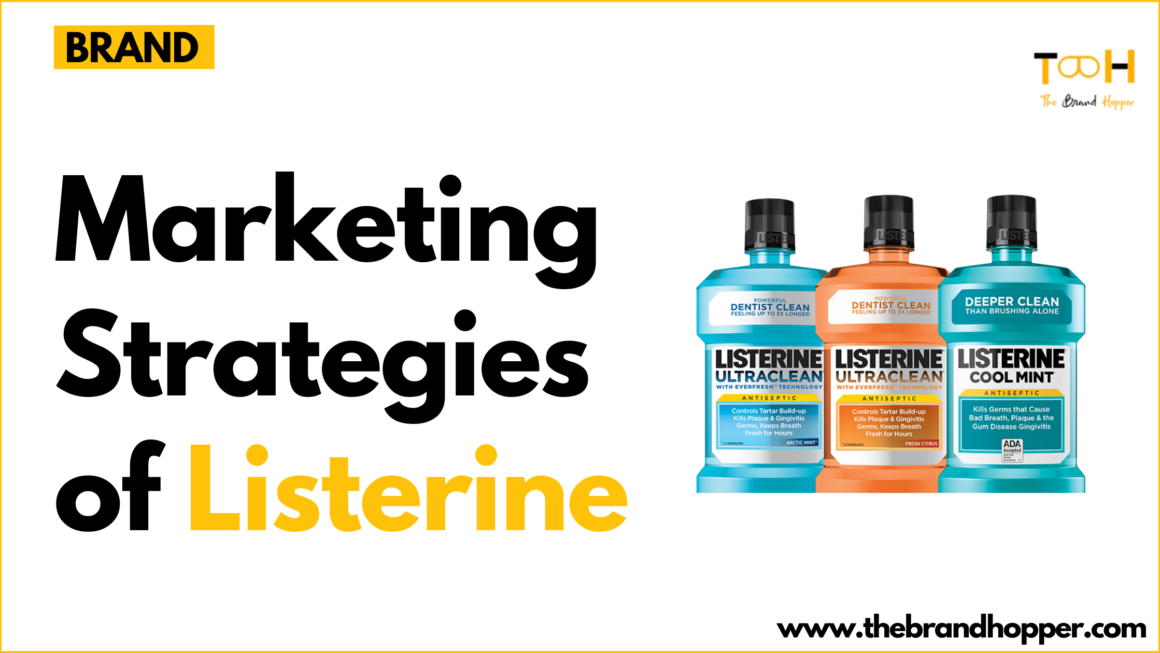In the frothy world of beer, Anheuser-Busch InBev (AB InBev) has long reigned supreme, commanding an impressive 31.2% of the global market share. But make no mistake – the beer industry is far from a one-horse race. As we dive into 2024, a host of formidable competitors are nipping at AB InBev’s heels, each bringing their unique flavor to the market. From craft beer revolutionaries to international powerhouses, these rivals are shaking up the status quo and giving the industry leader a run for its money.
Did you know that despite AB InBev’s dominance, the beer landscape is evolving faster than ever? Changing consumer preferences, a focus on sustainability, and the rise of alternative beverages are reshaping the playing field. It’s a David and Goliath story playing out on a global scale, with craft breweries and regional powerhouses taking on the brewing behemoth. So, grab your favorite pint glass and join us as we explore the top competitors challenging AB InBev’s throne in 2024. It’s time to discover how these brewing titans are stirring up the pot in the ever-exciting world of beer!
The Beer Industry Landscape in 2024
As we look at the beer industry in 2024, we see a market that’s both familiar and radically changed. Global beer sales are projected to reach a staggering $850 billion this year, growing at a steady CAGR of 3.5% since 2019. This growth, however, isn’t evenly distributed. The Asia-Pacific region continues to dominate, with China and India driving significant expansion. Meanwhile, North America and Europe show more modest growth, primarily fueled by the premium and craft segments outperforming traditional lagers.
The industry is being shaped by several key trends. Premiumization is at the forefront, with consumers increasingly willing to pay more for higher-quality, unique brews. This shift has opened the door for craft breweries and premium brands to capture market share from mass-market lagers. Simultaneously, health-conscious consumers are driving demand for low-alcohol, low-calorie, and non-alcoholic beers, forcing even the largest brewers to innovate in these categories.
Sustainability has become more than just a buzzword – it’s now a key differentiator. Breweries large and small are investing in eco-friendly packaging, reducing water usage, and implementing more sustainable production processes. This focus on sustainability isn’t just good for the planet; it’s becoming increasingly important to consumers, particularly younger demographics.
The COVID-19 pandemic has left a lasting impact on the industry. While on-premise consumption has rebounded, the at-home drinking habits formed during lockdowns persist. This shift has accelerated the growth of e-commerce and direct-to-consumer sales channels for beer companies. Additionally, the pandemic highlighted the importance of supply chain resilience, leading many brewers to focus on localizing production and diversifying their supplier base.
In this dynamic landscape, AB InBev maintains its position as the industry leader, but it’s not without challenges. The company’s most recent financial reports show a 5% revenue growth, driven primarily by its premium brands like Corona and Stella Artois. However, AB InBev faces pressure from high debt levels resulting from past acquisitions and the ongoing shift in consumer preferences away from mass-market lagers. As we delve into the profiles of AB InBev’s top competitors, we’ll see how each is carving out its niche and challenging the status quo in this vibrant and ever-changing industry.
1. Heineken N.V.
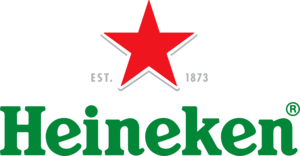
Website – https://www.heineken.com/
When it comes to giving AB InBev a run for its money, few can match the global reach and brand power of Heineken N.V. Founded in 1864 in Amsterdam, this Dutch brewing giant has grown to become the second-largest beer company in the world, operating in over 190 countries. Heineken’s iconic green bottle and red star are recognized worldwide, but the company’s strength goes far beyond its flagship brand.
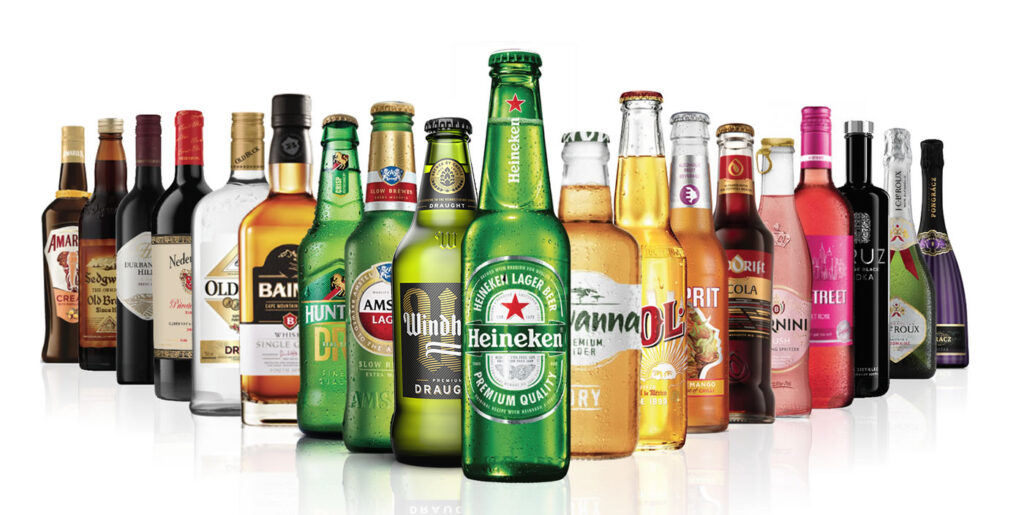
Heineken’s portfolio boasts over 300 international, regional, and local beers, including popular brands like Amstel, Sol, Tiger, and Birra Moretti. This diverse range allows Heineken to cater to various tastes and markets, giving it significant flexibility in competing with AB InBev. With approximately 12% global market share, Heineken may not match AB InBev’s dominance, but it’s certainly a force to be reckoned with.
The company’s strategy for competing with AB InBev focuses heavily on premium positioning. Heineken has been steadily shifting its portfolio towards higher-margin, premium beers, aligning with the global trend of premiumization in the beer market. This approach not only drives profitability but also helps differentiate Heineken from AB InBev’s mass-market offerings.
Innovation is another key pillar of Heineken’s strategy. The company has been at the forefront of the non-alcoholic beer trend with Heineken 0.0, which has seen remarkable success in markets worldwide. This move not only taps into the growing health-conscious consumer base but also allows Heineken to expand into new consumption occasions and markets where traditional beer sales are restricted.
Sustainability is where Heineken truly shines in its competition with AB InBev. The company has set ambitious goals, aiming to be carbon neutral in production by 2030 and to implement a global zero-waste-to-landfill program. These initiatives resonate strongly with environmentally conscious consumers and help build brand loyalty beyond just product taste.
In recent years, Heineken has also made strategic moves to strengthen its market position. The acquisition of Punch Taverns in the UK, for instance, has given Heineken greater control over its distribution network in a key market. The company has also launched new products like the Pure Piraña hard seltzer, showing its willingness to expand beyond traditional beer categories to compete in emerging segments.
Heineken’s digital transformation efforts are another area where it’s challenging AB InBev. The company is investing heavily in e-commerce capabilities and data analytics, recognizing the growing importance of direct-to-consumer channels and personalized marketing in the post-pandemic world.
While Heineken may not match AB InBev in sheer size, its focus on premium brands, sustainability, innovation, and digital transformation make it a formidable competitor. As consumer preferences continue to evolve, Heineken’s strategies position it well to potentially narrow the gap with the industry leader in the coming years.
2. Carlsberg Group
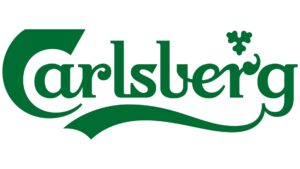
Website – https://www.carlsberggroup.com/
From its humble beginnings in Copenhagen in 1847, Carlsberg Group has evolved into a global brewing powerhouse, standing tall as one of AB InBev’s most significant competitors. The company’s journey is a testament to the power of reinvention and strategic focus in the face of changing market dynamics.
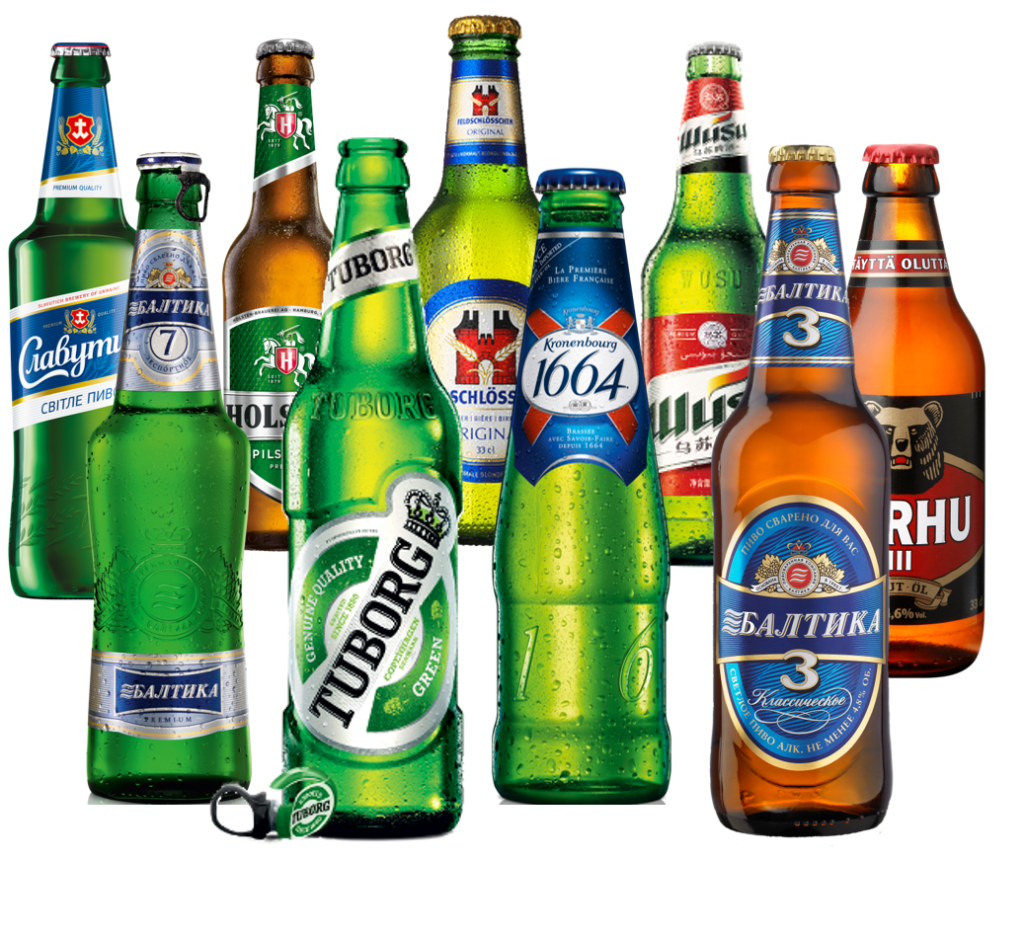
Carlsberg’s transformation in recent years has been nothing short of remarkable. The company’s “SAIL’22” strategy, launched in 2016, marked a turning point, shifting focus towards premium brands, craft beers, and sustainability. This strategic pivot has allowed Carlsberg to adapt to changing consumer preferences and position itself as a forward-thinking, premium beer company.
One of Carlsberg’s key strengths in competing with AB InBev lies in its strong presence in Northern and Eastern Europe. In these markets, Carlsberg often outperforms AB InBev, leveraging its deep understanding of local tastes and preferences. The company has also been making significant inroads in Asia, particularly in China, where its Tuborg brand has seen remarkable success.
Innovation has been at the heart of Carlsberg’s strategy to differentiate itself from AB InBev. The company has not shied away from exploring new categories and flavors. For instance, the acquisition of London Fields Brewery signaled Carlsberg’s intention to compete in the craft beer segment. Similarly, the launch of the luxury beer brand Jacobsen, paying homage to the company’s founder, demonstrates Carlsberg’s commitment to the premium segment.
Perhaps the area where Carlsberg most clearly distinguishes itself from AB InBev is sustainability. The company’s ambitious “Together Towards ZERO” program aims for zero carbon emissions and water waste by 2030. Carlsberg has backed this commitment with tangible innovations, such as the “Snap Pack” technology, which reduces plastic usage in packaging by up to 76%. The company is also researching a “Green Fiber Bottle,” a fully biodegradable beer bottle that could revolutionize the industry’s approach to packaging.
However, Carlsberg’s journey hasn’t been without challenges. The company has struggled to compete effectively with AB InBev in Western Europe and North America, markets where AB InBev’s economies of scale and established distribution networks give it a significant advantage. Additionally, the premiumization strategy, while aligning with market trends, has sometimes come at the cost of volume sales in more price-sensitive markets.
Despite these challenges, Carlsberg’s focused strategy and commitment to sustainability position it as a strong competitor to AB InBev. As consumers increasingly value brands that align with their values and offer premium experiences, Carlsberg’s approach may well see it gaining ground on the industry leader in the years to come.
3. Molson Coors Beverage Company
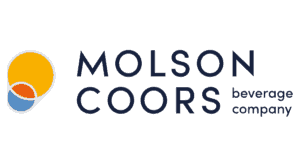
Website – https://www.molsoncoors.com
In the North American beer market, few names carry as much weight as Molson Coors Beverage Company. Born from the 2005 merger of Molson (Canada) and Coors (US), this brewing giant has a rich heritage that spans over two centuries. However, in recent years, Molson Coors has shown that it’s not content to rest on its laurels, instead embarking on a bold strategy to diversify and innovate in the face of changing consumer tastes and intense competition from AB InBev.
The company’s 2019 rebranding from Molson Coors Brewing to Molson Coors Beverage Company was more than just a name change – it was a declaration of intent. This move signaled a shift beyond traditional beer into a broader range of beverage categories, positioning the company to compete with AB InBev on multiple fronts.
At the core of Molson Coors’ portfolio are its iconic beer brands: Coors Light, Miller Lite, and Molson Canadian. These brands continue to be major players in the light beer category, going head-to-head with AB InBev’s Bud Light. Molson Coors has invested heavily in marketing campaigns that emphasize the American heritage and brewing tradition of these brands, appealing to consumers’ sense of nostalgia and authenticity.
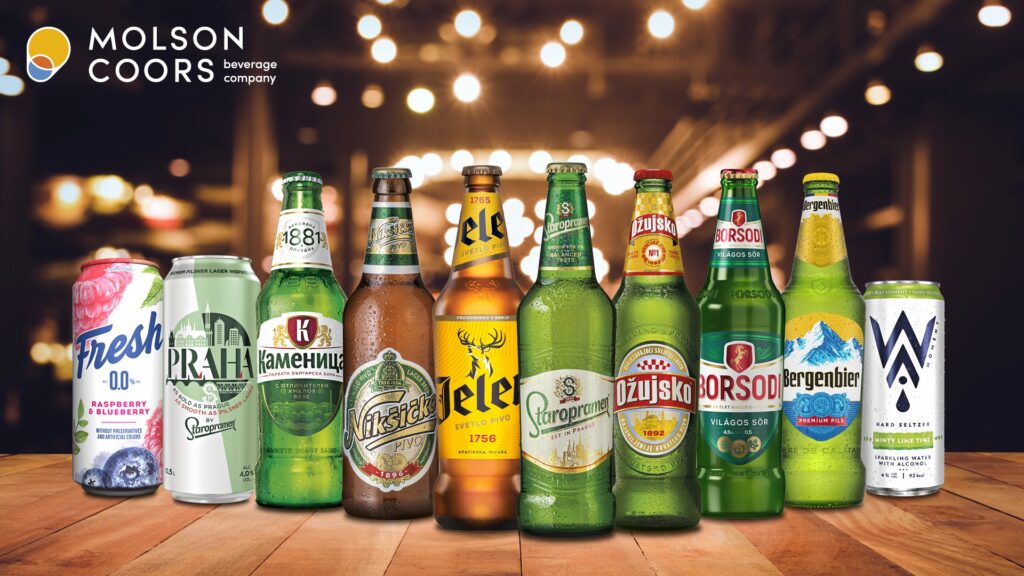
However, recognizing the growing craft beer trend, Molson Coors has also made strategic moves in this space. The acquisition of craft breweries like Blue Moon and Leinenkugel’s has allowed the company to compete in the premium and craft segments, areas where AB InBev has also been expanding aggressively.
Perhaps the most significant aspect of Molson Coors’ strategy has been its rapid expansion into non-beer categories. The launch of Vizzy Hard Seltzer and Coors Seltzer represented a major push into the booming hard seltzer market, directly challenging AB InBev’s offerings like Bud Light Seltzer. Furthermore, the company’s partnership with La Colombe to produce ready-to-drink coffee beverages showcases its ambition to compete across the broader beverage alcohol spectrum.
In a bold move that highlights the changing landscape of the beverage industry, Molson Coors has even ventured into the cannabis-infused beverage market. Through a partnership with HEXO Corp, the company has developed CBD-infused beverages for the Canadian market, positioning itself at the forefront of this emerging category.
Molson Coors’ competition with AB InBev in North America is particularly intense. The company has been investing heavily in e-commerce and direct-to-consumer platforms to counter AB InBev’s distribution advantage. This digital push has become even more critical in the wake of the COVID-19 pandemic, as consumer purchasing habits have shifted increasingly online.
Despite these innovative moves, Molson Coors faces significant challenges. The overall beer market in North America has been stagnant, with consumers increasingly turning to wine, spirits, and alternative beverages. Additionally, the rapid proliferation of craft breweries has fragmented the market, making it harder for large companies like Molson Coors to maintain market share.
However, the company’s willingness to innovate and diversify, combined with the strength of its core brands, makes Molson Coors a formidable competitor to AB InBev in the North American market. As the beverage landscape continues to evolve, Molson Coors’ adaptability may prove to be its greatest asset in the ongoing battle for market dominance.
4. Asahi Group Holdings
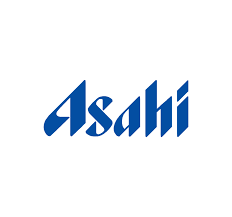
Website – https://www.asahigroup-holdings.com/en/
When discussing AB InBev’s top competitors, it’s impossible to overlook the rapid ascent of Asahi Group Holdings. This Japanese brewing giant has transformed itself from a primarily domestic player into a global force in the beer industry, particularly making waves in the premium beer segment.
Asahi’s story is one of ambitious expansion and strategic acquisitions. The company’s aggressive move into the European market began in 2016 with the acquisition of several former SABMiller brands, including Peroni, Grolsch, and Pilsner Urquell. This bold step was followed by the purchase of Fuller’s beer business in the UK in 2019. These acquisitions not only expanded Asahi’s geographic footprint but also significantly bolstered its portfolio of premium brands.
The company’s flagship brand, Asahi Super Dry, has been at the forefront of its global strategy. Positioned as a premium international brand, Super Dry has found success in markets far beyond Japan’s shores. Asahi has leveraged the crisp, clean taste profile of Super Dry to appeal to consumers looking for a refreshing alternative to heavier lagers, directly competing with AB InBev’s global brands like Budweiser and Stella Artois.
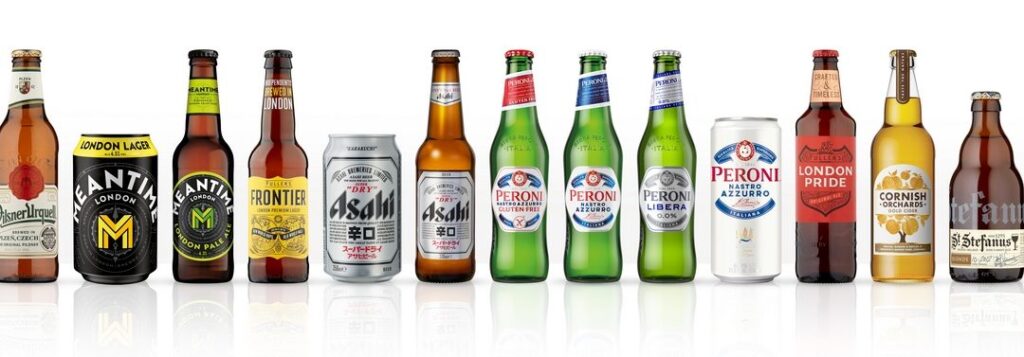
One of Asahi’s key strategies in competing with AB InBev has been its focus on premiumization. By positioning its expanded portfolio of European brands as premium offerings, Asahi has tapped into the growing consumer trend towards higher-quality, more expensive beers. This strategy aligns well with shifting consumer preferences, particularly among younger drinkers who often prioritize quality and experience over quantity.
However, Asahi’s journey hasn’t been without challenges. The company’s smaller global scale and less diverse geographic presence compared to AB InBev can be a disadvantage in terms of economies of scale and distribution networks. Additionally, the high prices paid for its European acquisitions have led to increased debt levels, putting pressure on the company’s financials.
Despite these challenges, Asahi has shown remarkable agility in adapting to new market trends. The company has been quick to recognize the growing demand for non-alcoholic beer options, launching products like Asahi Dry Zero. This zero-alcohol beer has captured significant market share in Japan and is now being rolled out in other markets, competing directly with AB InBev’s non-alcoholic offerings.
Asahi’s strength in the Japanese market, combined with its growing presence in premium European markets, positions it uniquely among AB InBev’s competitors. While it may not match AB InBev in terms of global reach, Asahi’s focus on premium positioning and its strong foothold in key markets make it a competitor that AB InBev cannot afford to ignore.
As we look to the future, Asahi’s continued expansion and focus on premium brands could see it gaining further ground on AB InBev, particularly in markets where consumer preferences are shifting towards higher-quality, craft-style beers. The company’s ability to blend Japanese brewing precision with European brewing heritage creates a unique value proposition that resonates with consumers around the world.
5. Tsingtao Brewery Company
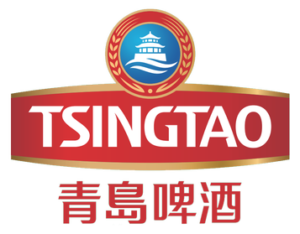
Website – https://www.tsingtao.com/
In the vast and rapidly growing Chinese beer market, Tsingtao Brewery Company stands out as a formidable competitor to AB InBev. Founded in 1903 by German settlers in Qingdao, Tsingtao has grown to become China’s second-largest brewery, commanding about 15% of the domestic market share. Its distinctive green bottles and sailing ship logo have become synonymous with Chinese beer both at home and abroad.
Tsingtao’s strength lies in its deep roots in the Chinese market, a factor that gives it a significant advantage over international giants like AB InBev. The company’s understanding of local tastes and consumption habits, combined with its extensive distribution network, allows it to maintain a strong position in a market that foreign brewers often find challenging to navigate.
In recent years, Tsingtao has been actively working to modernize its image and product offerings to appeal to younger Chinese consumers. This demographic is increasingly sophisticated in its beer choices, often preferring premium and craft-style beers over traditional lagers. In response, Tsingtao has launched several new products, including Tsingtao IPA and other craft-style beers. These innovations directly challenge AB InBev’s attempts to capture the premium segment of the Chinese market with its global brands.
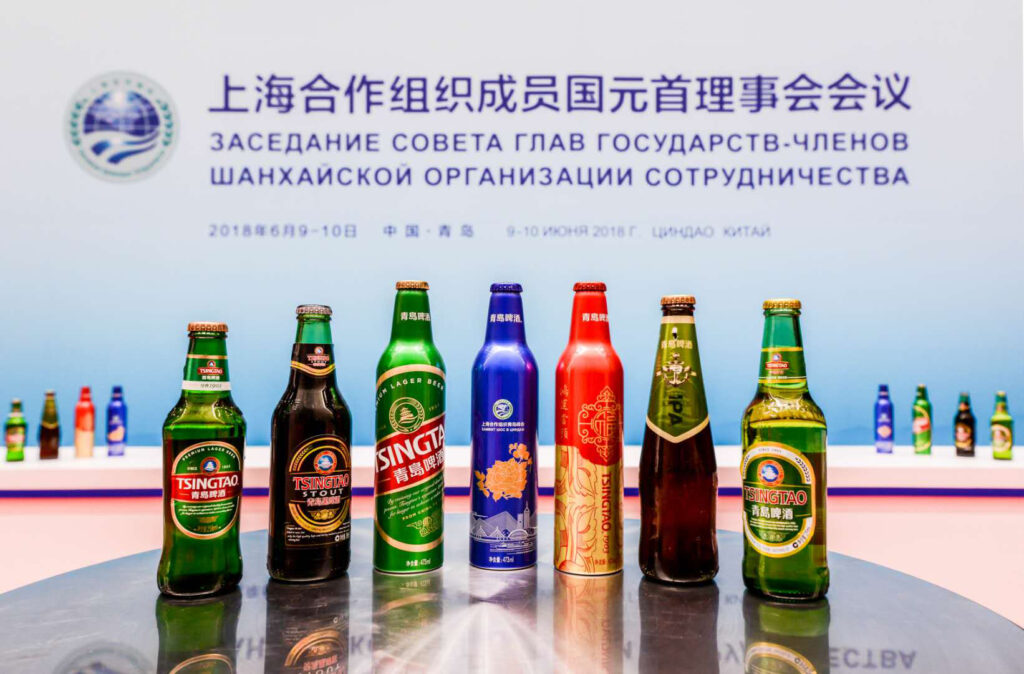
Tsingtao’s international expansion efforts have also been noteworthy. The brand is now exported to over 100 countries, with a particular focus on overseas Chinese communities. This strategy has helped Tsingtao build a global presence, albeit on a smaller scale compared to AB InBev. The company has been forming partnerships with international distributors to increase its global footprint, slowly but steadily expanding its reach beyond its home market.
When it comes to competing directly with AB InBev’s Chinese brands (such as Harbin and Sedrin, which AB InBev acquired through its purchase of SABMiller), Tsingtao leans heavily on its authentic Chinese heritage. Marketing campaigns often emphasize Tsingtao’s long history and its status as a truly Chinese brand, appealing to a sense of national pride among domestic consumers.
However, Tsingtao faces significant challenges in its competition with AB InBev. The Chinese beer market, while still growing, has been showing signs of maturation, with overall volume growth slowing in recent years. This has intensified competition, particularly in the premium segment where AB InBev has been aggressively expanding.
Additionally, while Tsingtao has been making strides in premiumization and product innovation, it still lags behind AB InBev in terms of research and development capabilities and marketing budgets. AB InBev’s global scale allows it to bring international expertise and resources to bear in the Chinese market, putting pressure on local players like Tsingtao.
Despite these challenges, Tsingtao’s strong brand recognition, extensive distribution network, and deep understanding of the Chinese market make it a significant obstacle to AB InBev’s ambitions in China. As the Chinese beer market continues to evolve, the ongoing competition between these two brewing giants will undoubtedly shape the future of beer consumption in the world’s most populous nation.
6. Diageo
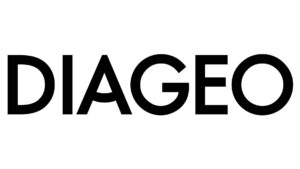
Website – https://www.diageo.com/en
When discussing AB InBev’s competitors, Diageo plc presents an interesting case. Primarily known as the world’s largest producer of spirits and a major producer of wine, Diageo has a significant, if somewhat niche, presence in the global beer market. The company’s beer strategy revolves almost entirely around one iconic brand: Guinness.
Guinness, with its distinctive dark color and creamy head, is more than just a beer – it’s a cultural icon. Founded in 1759 in Dublin, Guinness has a rich history and a loyal following around the world. Diageo’s strategy with Guinness in competing against AB InBev is multifaceted and leverages the brand’s unique position in the beer market.
First and foremost, Diageo has been focusing on innovation within the Guinness brand to appeal to changing consumer tastes and compete with AB InBev’s vast portfolio. This has included the launch of products like Guinness Nitro IPA, which combines the brand’s nitrogen gas tradition with the popular IPA style, and Guinness 0.0, a non-alcoholic version that taps into the growing demand for alcohol-free options. These innovations allow Guinness to compete in new categories while maintaining its distinctive identity.
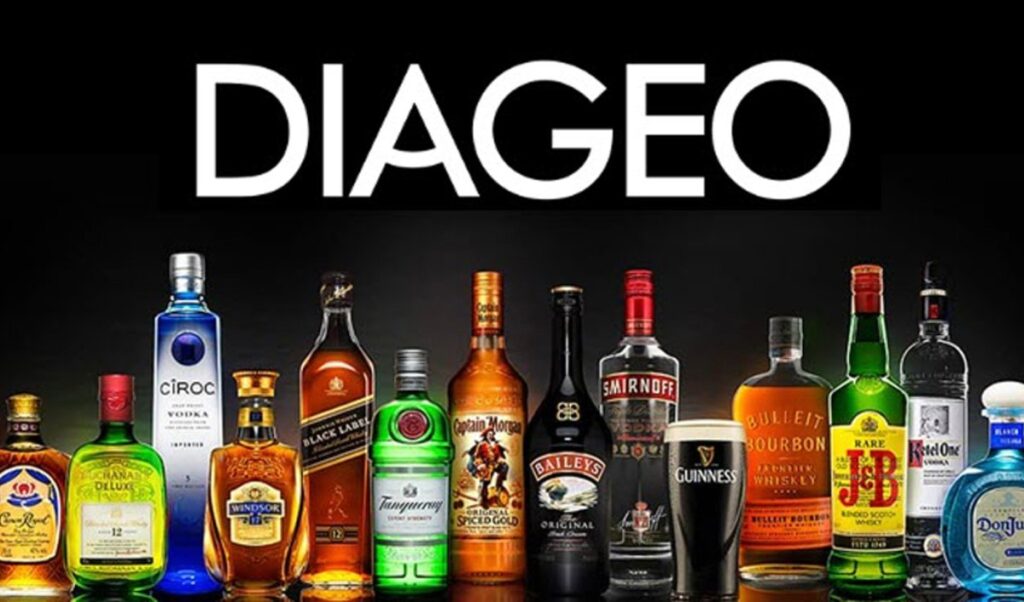
One of Diageo’s key advantages in its beer operations is its ability to leverage its extensive distribution network, primarily built for its spirits brands. This allows Guinness to achieve significant market penetration, particularly in on-premise accounts where Diageo’s relationships with bars and restaurants give it an edge. This cross-category strength is something that AB InBev, despite its larger size in the beer market, can’t easily match.
Diageo’s position as a major player in both beer and spirits also allows for interesting cross-category marketing opportunities. For example, the company has launched several Guinness barrel-aged whiskeys, creating unique products that tie together different parts of its portfolio. This kind of innovation allows Diageo to differentiate itself from beer-focused competitors like AB InBev.
In terms of market focus, Diageo has been particularly successful with Guinness in Africa, where the brand has a strong presence and cultural resonance. The company has invested heavily in local production facilities and marketing efforts in countries like Nigeria and Kenya, directly challenging AB InBev’s attempts to expand in these growing markets.
However, Diageo’s beer strategy is not without its challenges. The focus on a single major beer brand means that Diageo lacks the portfolio diversity of AB InBev and other major beer companies. This can make it more vulnerable to shifts in consumer tastes or downturns in specific markets.
Additionally, while Guinness is a powerful brand, its distinctive taste profile can be polarizing, making it challenging to achieve the same mass-market appeal as some of AB InBev’s more broadly popular lagers. Diageo has tried to address this by introducing new Guinness variants and other beer brands, but these efforts have had mixed success.
7. Boston Beer Company
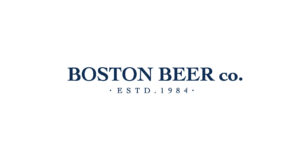
Website – https://www.bostonbeer.com/
In the David versus Goliath story of the beer industry, Boston Beer Company stands out as one of the most successful and influential craft brewers taking on the likes of AB InBev. Founded in 1984 by Jim Koch, Boston Beer Company and its flagship brand, Samuel Adams, have played a pivotal role in the craft beer revolution that has reshaped the American beer landscape.
From its humble beginnings, Boston Beer Company has grown to become the largest craft brewer in the United States. However, what’s most impressive about the company is not just its size, but its ability to maintain a craft beer ethos and reputation for quality while operating on a national scale. This balance of craft credibility and large-scale operations puts Boston Beer Company in a unique position to challenge AB InBev, particularly in the premium and super-premium segments of the market.
One of Boston Beer Company’s key strengths in competing with AB InBev is its agility and capacity for innovation. While AB InBev’s size gives it tremendous resources, it can also make the company slower to respond to changing consumer preferences. Boston Beer Company, on the other hand, has demonstrated a remarkable ability to quickly develop and bring new products to market. This was perhaps best exemplified by the company’s early entry into the hard seltzer category with its Truly brand, which quickly became a major player in this booming segment.
The company’s portfolio has expanded well beyond its original Samuel Adams lagers and ales. Today, Boston Beer Company offers a diverse range of beverages including Angry Orchard hard cider, Twisted Tea flavored malt beverages, and the aforementioned Truly Hard Seltzer. This diversification strategy allows the company to compete with AB InBev across multiple beverage categories and appeal to a wide range of consumer preferences.
Boston Beer Company’s marketing strategy also sets it apart from AB InBev. While the brewing giant relies heavily on mass-market advertising and sports sponsorships, Boston Beer Company has often taken a more grassroots approach. The company has long emphasized education about beer styles and brewing processes, positioning itself as a champion of beer quality and craftsmanship. This approach resonates with consumers who are increasingly interested in the story behind their beer and are willing to pay a premium for perceived quality and authenticity.
However, Boston Beer Company’s journey hasn’t been without challenges. As the craft beer segment has become increasingly crowded, the company has faced growing competition not just from AB InBev, but from thousands of smaller, local craft breweries. This has put pressure on the Samuel Adams brand, which some consumers now view as too large or mainstream to be truly “craft.”
Additionally, the company’s rapid growth and diversification have brought new operational challenges. Scaling up production to meet demand, particularly for its non-beer products like Truly, has sometimes led to supply chain issues and inconsistencies in product quality. These are areas where AB InBev’s vast resources and decades of large-scale brewing experience give it a significant advantage.
Despite these challenges, Boston Beer Company’s continued success and influence on the broader beer industry make it a significant competitor to AB InBev. While it may not match the brewing giant in terms of volume, Boston Beer Company’s strength in premium categories, its innovation capabilities, and its strong brand equity among craft beer enthusiasts ensure that it will continue to be a thorn in AB InBev’s side for years to come.
8. Kirin Holdings Company
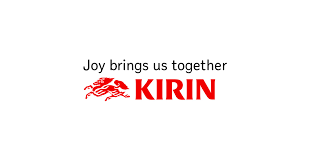
Website – https://www.kirinholdings.com/en/
Kirin Holdings Company, one of Japan’s largest beverage companies, presents another formidable challenge to AB InBev’s global dominance. With a history dating back to 1885, Kirin has evolved from a local Japanese brewer into a diversified global beverage and pharmaceutical company. In the beer market, Kirin’s approach to competing with AB InBev is marked by strategic partnerships, a focus on health and wellness, and strong sustainability initiatives.
One of Kirin’s key strategies in the global beer market has been to form strategic partnerships and joint ventures. This approach allows Kirin to expand its reach and compete with AB InBev in markets where it might not have a strong direct presence. A prime example of this is Kirin’s partnership with Heineken in Brazil through Brasil Kirin (although this joint venture was later sold to Heineken). In China, Kirin has a joint venture with China Resources Beer, one of the country’s largest brewers, allowing it to compete in the world’s largest beer market by volume.
In its home market of Japan, Kirin goes head-to-head with AB InBev’s Budweiser and other imported premium brands. Kirin’s strategy here focuses on innovation and premiumization. The company has been introducing new products that cater to changing consumer tastes, such as craft-style beers and low-alcohol options. Kirin’s Ichiban Shibori, for instance, is positioned as a premium beer that competes directly with AB InBev’s global brands.
One area where Kirin particularly distinguishes itself from AB InBev is its focus on health and wellness. Recognizing the growing consumer trend towards healthier lifestyles, Kirin has been developing functional beverages with health benefits. In the beer category, this has translated into an expansion of non-alcoholic beer offerings like Kirin Zero ICHI. This proactive approach to health trends could give Kirin an edge as consumer preferences continue to evolve.
Kirin’s sustainability initiatives also set it apart in its competition with AB InBev. The company has implemented a “CSV (Creating Shared Value) Management” strategy, which aims to create value for both society and the company. As part of this, Kirin has committed to using 100% renewable energy in its brewery operations by 2040. This focus on sustainability resonates with increasingly environmentally conscious consumers and helps build brand loyalty beyond just product taste.
In the Asia-Pacific region, Kirin has been working to strengthen its position through a combination of acquisitions and partnerships. The company has a significant presence in Australia through Lion, its wholly-owned subsidiary, which competes directly with AB InBev’s Carlton & United Breweries. In Southeast Asia, Kirin has been expanding its operations, seeing the region as a key growth market.
However, Kirin faces several challenges in its competition with AB InBev. The Japanese domestic beer market, which is still Kirin’s primary source of beer revenue, has been shrinking due to an aging population and changing consumer preferences. This puts pressure on Kirin to expand internationally, where it often faces stiff competition from AB InBev’s established global brands.
Additionally, while Kirin’s diversification into pharmaceuticals and other beverages provides financial stability, it can sometimes lead to a lack of focus on the beer business compared to more beer-centric competitors like AB InBev. The company needs to balance its resources and attention across its various business segments.
Despite these challenges, Kirin’s innovative approach to product development, its strategic partnerships, and its strong focus on health and sustainability make it a significant competitor to AB InBev, particularly in the Asia-Pacific region. As the global beer market continues to evolve, Kirin’s ability to adapt to changing consumer preferences and its strong brand presence in key markets ensure that it will remain a major player in the industry.
9. Constellation Brands
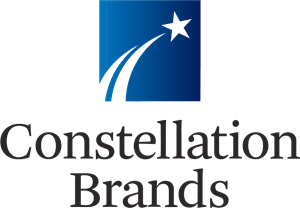
Website – https://www.cbrands.com/
Constellation Brands presents a unique case in the lineup of AB InBev’s competitors. While not a traditional brewing company, Constellation has become a major player in the U.S. beer market, largely due to its ownership of the rights to sell AB InBev’s former brands in the United States. This unusual situation makes Constellation both a competitor and, in some ways, a partner to AB InBev.
The story of Constellation’s rise in the beer industry begins with AB InBev’s acquisition of Grupo Modelo in 2013. To satisfy antitrust concerns, AB InBev was required to sell the U.S. rights to Modelo’s brands, including Corona and Modelo Especial. Constellation Brands, already a major player in the wine and spirits industry, seized this opportunity, acquiring the rights to import, market, and sell these brands in the U.S.
This acquisition transformed Constellation overnight into the third-largest beer company in the U.S. market. The Corona brand, in particular, has been a powerhouse for Constellation. Corona Extra is the top-selling imported beer in the U.S., while Corona Premier and Corona Familiar have successfully expanded the brand family. Modelo Especial has also seen tremendous growth, becoming one of the top-selling beer brands in the country.
Constellation’s strategy in competing with AB InBev centers around leveraging the strong brand equity of its Mexican import portfolio. The company has invested heavily in marketing these brands, emphasizing their premium positioning and association with relaxation and escape. This approach has resonated strongly with U.S. consumers, allowing Constellation to capture market share from domestic premium brands, many of which are owned by AB InBev.
Innovation has been another key aspect of Constellation’s strategy. The company has been quick to respond to emerging trends in the beverage alcohol market. For instance, recognizing the booming hard seltzer category, Constellation launched Corona Hard Seltzer in 2020. This move allowed the company to leverage the strong Corona brand in a new, rapidly growing segment, directly competing with AB InBev’s offerings like Bud Light Seltzer.
Constellation has also shown a willingness to look beyond traditional beer categories. The company made headlines with its significant investment in Canopy Growth, a Canadian cannabis company. While this move was not directly related to competing with AB InBev, it demonstrates Constellation’s forward-thinking approach and its desire to position itself at the forefront of emerging trends in the broader beverage and recreational substance markets.
In the premium and super-premium segments, Constellation has continued to expand its portfolio. The acquisition of Ballast Point Brewing in 2015 (though later divested) and Funky Buddha Brewery in 2017 showed the company’s interest in the craft beer segment. While these moves have had mixed results, they illustrate Constellation’s ambition to compete across multiple beer categories.
However, Constellation’s position in the beer market is not without challenges. The company’s reliance on a relatively small number of brands, primarily its Mexican imports, makes it vulnerable to shifts in consumer preferences or potential supply chain disruptions. Additionally, the company’s beer operations are heavily focused on the U.S. market, limiting its ability to compete with AB InBev on a truly global scale.
There’s also the unique dynamic of Constellation’s relationship with AB InBev to consider. While competitors in the U.S. market, the two companies are also partners in a sense, with AB InBev producing the beer that Constellation sells under the Corona and Modelo brands. This arrangement requires careful management and creates a level of interdependence that is unusual among major competitors.
Despite these challenges, Constellation’s success in building Corona and Modelo into powerhouse brands in the U.S. market has made it a formidable competitor to AB InBev. The company’s focus on premium positioning, its agility in responding to market trends, and its strong marketing capabilities have allowed it to consistently grow market share, often at the expense of AB InBev’s domestic premium brands.
Conclusion
As we’ve explored the top competitors of AB InBev, a complex and dynamic picture of the global beer industry emerges. While AB InBev remains the undisputed market leader in terms of global volume and reach, each of its competitors brings unique strengths and strategies to the table, challenging the brewing giant in different ways and in different markets.
Heineken and Carlsberg, with their global presence and strong focus on premiumization and sustainability, present perhaps the most direct global competition to AB InBev. Molson Coors and Constellation Brands are formidable challengers in the crucial North American market, each leveraging strong brand portfolios and innovative approaches to capture market share.
In Asia, companies like Asahi, Tsingtao, and Kirin are not only defending their home markets but also expanding globally, bringing distinct brewing traditions and innovative products to consumers worldwide. Diageo, with its unique position straddling the beer and spirits categories, showcases how cross-category expertise can be leveraged to compete in the beer market.
Meanwhile, craft brewing pioneers like Boston Beer Company remind us that size isn’t everything in the beer industry. Innovation, authenticity, and a deep connection with consumers can allow smaller players to punch above their weight and influence the direction of the entire industry.
Several key themes emerge across these competitors:
- Premiumization: Almost all of AB InBev’s competitors are focusing on premium and super-premium offerings as a way to drive growth and profitability.
- Diversification: Many companies are expanding beyond traditional beer into categories like hard seltzers, ready-to-drink cocktails, and even cannabis-infused beverages.
- Sustainability: Environmental initiatives and sustainable brewing practices are becoming key differentiators in the industry.
- Health and Wellness: The rise of low-alcohol and non-alcoholic beer offerings reflects a growing consumer focus on healthier lifestyles.
- Local vs. Global: While some competitors are focusing on global expansion, others are doubling down on their strength in local markets.
- Innovation: Rapid product development and a willingness to experiment with new flavors and formats is a common thread among successful competitors.
As consumer preferences continue to evolve and new trends emerge, the ability of these companies to adapt and innovate will be crucial. While AB InBev’s scale gives it significant advantages, the diversity and agility of its competitors ensure that the global beer industry will remain fiercely competitive for years to come.
The future of the beer industry will likely be shaped by how these companies navigate emerging challenges and opportunities, from the impact of climate change on raw materials to the potential of new technologies in brewing and distribution. As the battle for market share continues, consumers stand to benefit from an ever-widening array of choices in the world of beer and beyond.
Also Read: Marketing Strategies and Marketing Mix of Diageo
To read more content like this, subscribe to our newsletter

